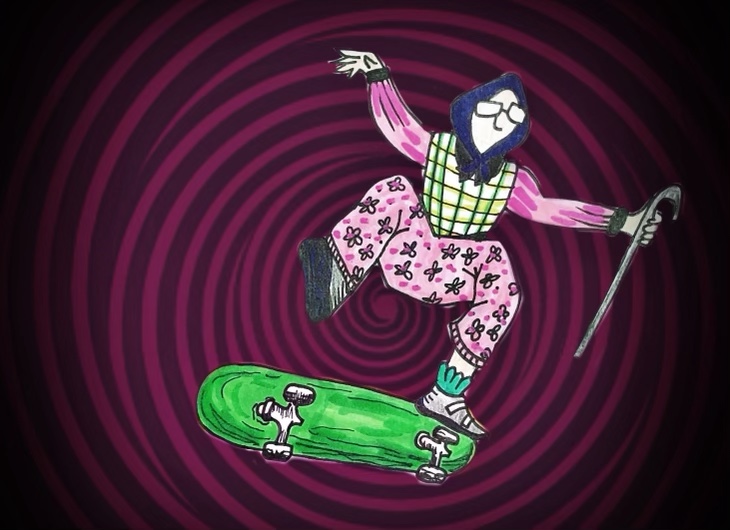It seems like nobody wants to be the age they are.
Little kids can’t wait to grow up, retirees fantasize about their college days and now 20-year-olds are getting preventative plastic surgery.
When I found a gray hair on my head over winter break, I was briefly scared until I realized that the hair on my head did not change that I was still only 19 and have barely begun my life.
If anything, it showed a part of my genetics, and was not something to be afraid of or take as a signal of whether or not I was “young enough.” However, my natural instinct had been fear.
Gen Z encompasses anyone born between 1997 and 2012, meaning that the oldest of us are in our late 20s and the youngest are just entering the preteen stage. As a generation, we’ve been characterized by our exposure to technology and the internet, according to a Feb. 23 Insider Intelligence article.
The media has definitely influenced how we view ourselves, and has warped our perception of how we are “supposed” to look. Beauty filters and photoshop have made us forget what real people look like.
“People begin to expect themselves to look like their filtered self and become obsessed with achieving that in the real world,” said Dr. Josie Howard in a Jan. 22 interview with InStyle magazine.
With so many synthetic alterations being made to people’s faces, natural aging becomes less familiar to the public, and scarier to younger generations.
One popular filter shows TikTok users what they would look like if they are old. Posts with this filter often include influencers putting down how they look or joking about their futures.
Other viral videos, such as this one by user @chelsalay, include the poster asking their audience what age they think the poster looks like, and often comments overestimate or criticize the poster’s appearance.
Our culture has always been obsessed with youth and beauty—this is certainly not something new. However, “I’m old” used to be a cry of those nearing their 30th birthday, not one of college students and younger.
Recently, children have started using professional anti-aging products meant for adult skin, such as retinol, in their skin care routines, according to a Jan. 26 article from USA Today.
Retinol is an ingredient that helps replace collagen as it diminishes and smooths out wrinkles. Other than for extreme acne cases, retinol is not necessary for teenagers, since their skin is still growing and expanding on its own.
Members of Gen Z are growing concerned with growing old before they have even finished their maturation into adulthood. Perhaps a more important indication of age than skin is the brain, which doesn’t fully develop until around age 25.
The heightened anxiety behind aging is not all appearance-based, however. Worries over wrinkles may be trending in our digital media, but fear of getting older also comes from a world where the future is not so certain for our generation.
Climate change has only been getting worse, and the financial state of the country has also not shown much promise.
Gen Z workers would prefer to retire around age 61, according to an Oct. 20, 2023 SHRM article. However, retirees aren’t eligible for Social Security until they turn 67, and many younger people are demanding it needs reform, according to a Jan. 23 article from the Wall Street Journal.
While our concerns for the future may be justified, Gen Z is going to keep aging, no matter how hard some may try to stop it.
Rather than give in to buying unnecessary products or disguising our hard-earned features, we should embrace the marks of our age and hope they lend us strength and wisdom to take on the future.














